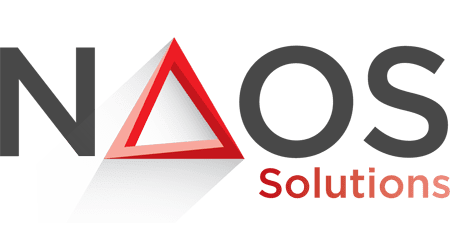Three of every four employers worldwide reported difficulty finding the talent they need, according to a 2024 global research by Manpower Group. Are your Talent Acquisition teams sifting through piles of resumes and still struggling to fill their open vacancies? It is high time to let a recruitment agency do the heavy lifting on your behalf.

Finding the perfect recruitment agency can be a game-changer for your business. Here’s the problem: how do you know the best fit? That’s what we’re here to solve.
This guide will explain how to choose the right recruitment agency to streamline your hiring process.
WHY CHOOSING THE RIGHT RECRUITMENT AGENCY MATTERS
Hiring top talent can be daunting for businesses in fast-growing industries or with seasonal employees. Here are some of the common challenges you may face:
- Talent Shortage: Finding qualified candidates who align with your company culture and goals can be a needle in a haystack. This is especially true in high-demand industries like healthcare (77%), IT (76%), and finance (72%).
- Time-Consuming: The traditional hiring process, from posting job ads to conducting interviews, can be extremely time-consuming and resource-intensive.
- High Turnover: Poor hiring decisions can lead to high turnover rates, disrupting operations and increasing costs. The cost of replacing just one employee can range from around 0.5 to 2 times their annual salary.
A good recruitment agency can be a game-changer for your hiring process. With access to a much more diverse talent pool and specialized expertise in your industry, you can streamline the hiring process and attract top-notch candidates.
Plus, the agency will handle administrative tasks and use effective screening methods to ensure you’re interviewing only the most qualified people. This not only saves you time but also improves the quality of your hires.
KEY CRITERIA FOR SELECTING A RECRUITMENT AGENCY
Keep these factors in mind when selecting a recruitment agency for your business.

Industry Specialization with Track Record and Reputation
Selecting one with expertise in your industry is best when choosing a recruitment agency. An agency that understands the nuances of your field can quickly identify and attract top talent for you. Here are some factors you should be looking for:
- Agency history: How long has the agency been in business?
- Client testimonials: Read detailed reviews from past clients to gauge their satisfaction.
- Success stories: Ask about the agency’s track record of successful placements.
Here are a few questions you can ask the agency before you make a choice:
- Can you provide examples of similar roles you’ve filled in my industry?
- What is your success rate for filling positions within my industry?
- How do you stay updated on industry trends and best practices?
Understanding Your Business Needs
A good recruitment agency will take the time to learn and understand your company’s culture, values, and specific hiring needs. This will allow them to find qualified candidates who fit your organization well.
Ask these questions to see if the agency understands your needs:
- Does the agency understand your company’s culture and values?
- Can the agency handle the volume and types of positions you need to fill?
- Can the agency meet all your requirements, such as location, experience level, or certifications?

Range of Services Offered
Different recruitment agencies offer various services. Some may specialize in temporary staffing, executive search, or volume hiring. Closely assess your business’s current needs so you can find a firm that can provide the services you need.
Ideally, the agency should offer a combination of these services at an affordable rate. This scalability and cost-effectiveness can make them a one-stop solution for your business.
Recruitment Process and Technology: The Future Is Now
The recruitment industry is undergoing a massive transformation driven by cutting-edge technological advancements. In 2024, nearly 61% of companies expect to increase their investment in talent acquisition technology, recognizing its pivotal role in optimizing the hiring process.
For recruitment agencies, embracing these innovations is not just a trend but a necessity for remaining competitive and delivering results.
Integrating artificial intelligence (AI), machine learning, and advanced analytics revolutionizes recruitment. Agencies leveraging these technologies can dramatically enhance efficiency and the candidate experience. Here’s how:
- AI-Driven Screening Tools: AI can automate the initial screening of resumes, allowing agencies to sift through hundreds of applications in a fraction of the time. Advanced algorithms identify the most qualified candidates based on skills, experience, and cultural fit. This ensures you’re presented with only the most promising candidates, saving your team valuable time and effort.
- Applicant Tracking Systems (ATS): ATS platforms streamline the entire recruitment process. From posting job ads to tracking candidate progress and feedback, these systems centralize all recruitment activities, enabling better coordination and faster decision-making.
- Data-Driven Insights: Recruitment analytics tools provide data that informs and refines hiring strategies. For example, insights such as time-to-fill, candidate engagement rates, and job market trends allow agencies to continuously improve their sourcing methods, making your recruitment process more intelligent and strategic.
- Enhanced Candidate Experience: Technology benefits employers and candidates. Features like automated email confirmations, AI-powered chatbots for answering questions, and mobile-friendly application platforms create a seamless and transparent experience. This positive experience can be critical in attracting and retaining top talent, especially in competitive industries.
Adopting these technologies ensures that recruitment agencies can deliver faster, more accurate, and cost-effective results. It also allows businesses to stay ahead of the curve by partnering with agencies prioritizing innovation in their recruitment processes.
Transparency in Fees and Contracts: A Must for Trust
Transparency is essential when working with a recruitment agency, especially regarding fees and contracts. Understanding the agency’s pricing structure and contract terms is critical for avoiding unexpected costs and ensuring smooth collaboration.
A recruitment partnership built on open communication will help you focus on what truly matters: finding the right talent for your business.
Here’s how to ensure clarity and avoid unpleasant surprises:
- Fee Structure: Recruitment agencies typically charge contingency or retained fees in one of two ways. Understanding how fees are structured will help you plan your budget accordingly.
- Contingency fees are only paid once the agency successfully places a candidate, making it a more flexible option.
- Conversely, retained fees involve an upfront fee for a dedicated search, often used for executive positions.
- Terms and Conditions: Each agency has unique terms and conditions detailing payment timelines, guarantees, and additional services. Carefully review these terms as they define the scope of your partnership and ensure that you both share the exact expectations. Clarifying such details upfront will prevent potential conflicts later on. For example:
- What happens if a candidate leaves within the first three months?
- Does the agency offer a replacement guarantee?
- Hidden Costs: It’s crucial to ask if additional costs aren’t explicitly mentioned in the contract. Some agencies might charge extra for background checks, skills testing, or advertising the position. Ensure every potential fee is spelled out in the agreement to avoid unexpected invoices.

To guide your conversations with the agency and ensure full transparency, consider asking the following questions:
- How are fees calculated (e.g., contingency fee, retained search)?
- What are the terms and conditions of the contract?
- What is included in the fee, and are there any additional services with extra costs?
- How long does the recruitment guarantee last, and what is the process if a hire doesn’t work out?
- Are there any penalties for terminating the contract early?
You can avoid hidden fees and ensure a transparent relationship with your recruitment agency by getting clear answers to these questions.
Open and honest communication will lead to fewer misunderstandings, more predictable costs, and a more effective partnership that supports your long-term talent acquisition goals.
HOW TO EVALUATE POTENTIAL RECRUITMENT AGENCIES
Once you have a list of prospects, you can use this criteria to narrow down your options.
Request for Proposals (RFP)
Even if you’re looking to fill just one position, sending out a detailed Request for Proposals (RFP) is a smart move. An RFP allows you to gather critical information from potential recruitment agencies and compare their offerings, helping you make a well-informed decision. It also sets clear expectations, ensuring that your chosen agency fully understands and can meet your requirements.
Here’s how to make your RFP process thorough and effective:
- Include a Detailed Job Description: Be as specific as possible when outlining the role you need to fill. This should include the responsibilities, qualifications, and any specific skills or certifications required. By providing a detailed job description, the agency can better gauge whether they have suitable candidates in their talent pool and can accurately assess their ability to meet your needs.
- Define Selection Criteria: Along with the job description, list the criteria you will use to select candidates. Whether it’s industry experience, cultural fit, or technical skills, the more precise you are, the easier it will be for the agency to align its search with your expectations. It also ensures that only the most qualified candidates will be presented to you.
- Assess the Agency’s Capacity: Ask about the agency’s recruitment team size, existing talent pool, and the overall capacity of its talent acquisition team. A large, diverse talent pool can indicate the agency’s ability to fill roles quickly. At the same time, the size and experience of the recruitment team speak to their ability to handle your specific needs.
Here are a few points to consider:
- How many recruiters will be dedicated to my account?
- What is the size and scope of your existing talent pool?
- How many similar positions have you filled recently, and what was the time-to-hire?

Interviewing Agencies
Once you’ve received the proposals, you can start scheduling interviews with the agencies that meet your criteria. Use these interviews to learn more about their services and assess their fit with your business. Here are some key questions to ask:
- How do you handle candidate sourcing and screening?
- What is your approach to building long-lasting relationships with candidates?
- Can you provide examples of successful placements in my industry?
- How do you measure the success of your recruitment efforts?
Client Testimonials and Case Studies
Client testimonials and case studies can tell much about an agency’s performance. Ideally, you should be able to find examples of successful placements that are similar to your hiring needs. Here’s what you need to look for:
- Client satisfaction: Are clients happy with the agency’s services?
- Quality of hires: Did the agency successfully fill the positions?
- Time-to-hire: How quickly did the agency fill the positions?
- Candidate satisfaction: Were candidates satisfied with the recruitment process?
Pilot Projects
Before your firm commits to a long-term partnership with a recruitment agency, you can test the agency with a small pilot project. This way, you can assess their performance and make sure they meet your expectations without fully investing. Pilot projects allow you to:
- Test the agency’s capabilities without a significant commitment.
- Determine if the agency’s approach aligns with your business.
- Gain firsthand experience before making any final decisions.
RED FLAGS TO WATCH OUT FOR
Unreliable recruitment agencies have red flags that will often show up early in the hiring process. Keep an eye out for these to avoid wasting an investment.
Lack of Communication
Effective communication is a must in any business relationship, especially when working with a recruitment agency. A lack of honest communication can lead to many misunderstandings, delays, and frustration. That’s the last thing you want in your recruitment processes!
Better communication can create benefits like:
- Transparency: Clear communication builds trust and ensures everyone is on the same page. This transparency should also extend to applicants since 50% of candidates find the lack of salary transparency frustrating.
- Timely updates: Regular updates keep you informed about the recruitment process. You might receive weekly or bi-weekly updates on candidate status, interview feedback, and timeline changes.
- Problem-solving: Effective communication helps address issues promptly. For instance, if the agency struggles to find qualified candidates, they should communicate this to you promptly and find solutions.
Overpromising and Under-Delivering
Some recruitment agencies may make unrealistic promises to secure your business. Be wary of agencies guaranteeing a certain number of candidates or a specific time-to-hire since there’s no way to ensure that.
Suppose the agency promises guaranteed results often too good to be true. If something feels off, it probably is! If you want to give them the benefit of the doubt, ask about the agency’s approach and the steps they’ll take to achieve these goals.

High Employee Turnover in the Agency
High employee turnover at a recruitment agency can be a red flag. It may indicate issues regarding the agency’s internal culture, management, or compensation. Here’s what a high turnover rate indicates about the agency’s internal culture:
- Poor working conditions: High turnover can indicate a toxic work environment. Around 32% of employees cite poor working conditions as a significant reason for leaving their jobs.
- Lack of opportunities: Employees may leave due to limited career growth or advancement. According to Gartner, 40% of departing employees cite a lack of upskilling opportunities as their reason for going.
- Unstable leadership: A lack of solid leadership can also contribute to high turnover. 42% of employees who voluntarily left their jobs say their manager or organization could have taken steps to prevent their departure but didn’t.
Lack of Transparency
Be cautious of agencies that are vague or secretive about their fees, processes, or candidate information. Transparency is very important for building a trusting relationship.
Contracts with unclear terms, lack of details about their services, hidden fees, and slow responses are huge red flags.
CONCLUSION
Inefficient hiring processes can hinder your business. Don’t let that happen—partner with a recruitment agency that caters to your needs and delivers accurate results. Contact NAOS Talents today for a consultation.

